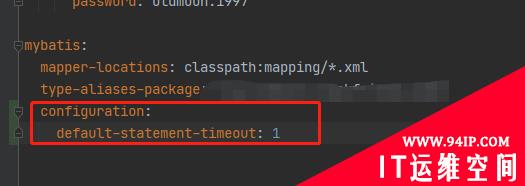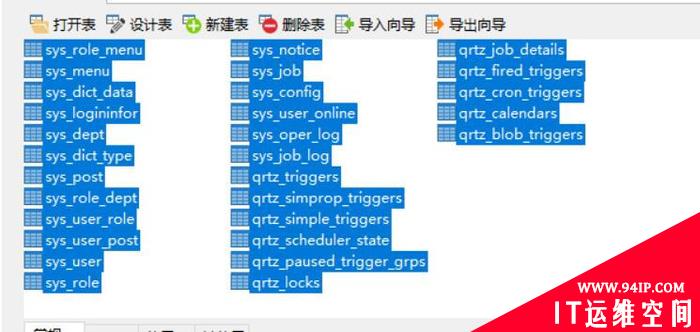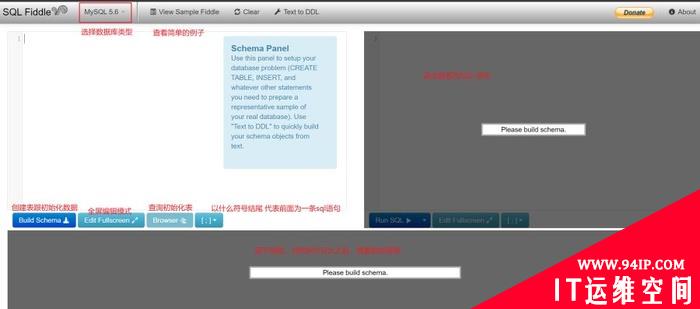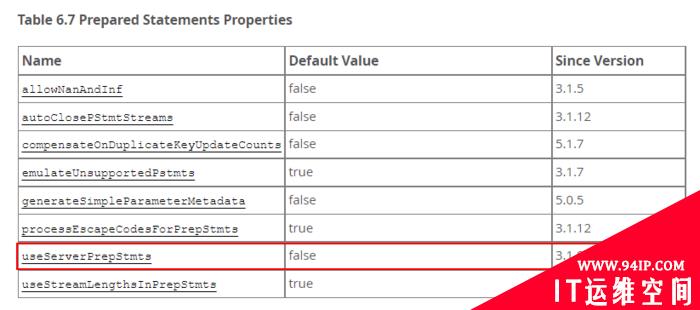在和一些朋友交流Nginx+Keepalived技术时,我虽然已成功多次实施Nginx+Keepaived项目方案,但这些都是用的单主Nginx在工作,从Nginx长期只是处于备份状态,所以我们想将二台Nginx负载均衡器都处于工作状态,其实用Nginx+Keepalived也很容易实现。

此方法适用场景:适合中小型网站应用场景。
一般为了维护方便,企业网站的服务器都在自己的内部机房里,只开放了Keepalived的VIP地址的两个端口80、443,通过Juniper SSG550防火墙映射出去,外网DNS对应映射后的公网IP。此架构的防火墙及网络安全说明如下:
此系统架构仅映射内网VIP的80及443端口于外网的Juniper SSG550防火墙下,其他端口均关闭,内网所有机器均关闭iptables防火墙;外网DNS指向即通过Juniper SSG550映射出来的外网地址。
Nginx负载均衡作服务器遇到的故障一般有:服务器网线松动等网络故障;服务器硬件故障发生损坏现象而crash;
Nginx服务进程死掉(这种情况理论上会遇到,但事实上生产环境下的Linux服务器没有出现过这种情况,足以证明了Nginx作为负载均衡器/反向代理服务器的稳定性,我们可以通过技术手段来解决这一问题)。
测试实验环境:
主Nginx之一:192.168.1.5
主Nginx之二:192.168.1.6
Web服务器一:192.168.1.17
Web服务器二:192.168.1.18
VIP地址一:192.168.1.8
VIP 地址二:192.168.1.9
一、Nginx和Keepalived的安装比较简单,我这里就不重复了,大家可以参考我的专题系列的文章,如下地址http://network.51cto.com/art/201007/209823.htm,我这里附上Nginx.conf配置文件,如下所示:
userwwwwww;
worker_processes8;
pid/usr/local/nginx/logs/nginx.pid;
worker_rlimit_nofile51200;
events
{
useepoll;
worker_connections51200;
}
http{
includemime.types;
default_typeapplication/octet-stream;
server_names_hash_bucket_size128;
client_header_buffer_size32k;
large_client_header_buffers432k;
client_max_body_size8m;
sendfileon;
tcp_nopushon;
keepalive_timeout60;
tcp_nodelayon;
fastcgi_connect_timeout300;
fastcgi_send_timeout300;
fastcgi_read_timeout300;
fastcgi_buffer_size64k;
fastcgi_buffers464k;
fastcgi_busy_buffers_size128k;
fastcgi_temp_file_write_size128k;
gzipon;
gzip_min_length1k;
gzip_buffers416k;
gzip_http_version1.0;
gzip_comp_level2;
gzip_typestext/plainapplication/x-javascripttext/cssapplication/xml;
gzip_varyon;
upstreambackend
{
ip_hash;
server192.168.1.17:80;
server192.168.1.18:80;
}
server{
listen80;
server_namewww.1paituan.com;
location/{
root/var/www/html;
indexindex.phpindex.htmindex.html;
proxy_redirectoff;
proxy_set_headerHost$host;
proxy_set_headerX-Real-IP$remote_addr;
proxy_set_headerX-Forwarded-For$proxy_add_x_forwarded_for;
proxy_passhttp://backend;
}
location/nginx{
access_logoff;
auth_basic"NginxStatus";
#auth_basic_user_file/usr/local/nginx/htpasswd;
}
log_formataccess'$remote_addr-$remote_user[$time_local]"$request"'
'$status$body_bytes_sent"$http_referer"'
'"$http_user_agent"$http_x_forwarded_for';
access_log/data/logs/access.logaccess;
}
}
#p#
二、配置Keepalived文件。
我这里简单说下原理,其实也就是通过Keepalived生成二个实例,二台Nginx互为备份,即***台是第二台机器的备机,而第二台机器也是***台的备机,而生成的二个VIP地址分别对应我们网站http://www.1paituan.com,这样大家在公网上可以通过DNS轮询来访问得到我们的网站,任何一台Nginx机器如果发生硬件损坏,Keepalived会自动将它的VIP地址切换到另一台机器,不影响客户端的访问,这个跟我们以前的LVS+Keepalived多实例的原理是一样的,相信大家也能明白。
主Nginx机器之一的Keepalived.conf配置文件如下:
!ConfigurationFileforkeepalived
global_defs{
notification_email{
yuhongchun027@163.com
}
notification_email_fromkeepalived@chtopnet.com
smtp_server127.0.0.1
smtp_connect_timeout30
router_idLVS_DEVEL
}
vrrp_instanceVI_1{
stateMASTER
interfaceeth0
virtual_router_id51
priority100
advert_int1
authentication{
auth_typePASS
auth_pass1paituan.com
}
virtual_ipaddress{
192.168.1.8
}
}
vrrp_instanceVI_2{
stateBACKUP
interfaceeth0
virtual_router_id52
priority99
advert_int1
authentication{
auth_typePASS
auth_pass1paituan.com
}
virtual_ipaddress{
192.168.1.9
}
}
主Nginx之二的keepalivd.conf配置文件如下:
!ConfigurationFileforkeepalived
global_defs{
notification_email{
yuhongchun027@163.com
}
notification_email_fromkeepalived@chtopnet.com
smtp_server127.0.0.1
smtp_connect_timeout30
router_idLVS_DEVEL
}
vrrp_instanceVI_1{
stateBACKUP
interfaceeth0
virtual_router_id51
priority99
advert_int1
authentication{
auth_typePASS
auth_pass1paituan
}
virtual_ipaddress{
192.168.1.8
}
}
vrrp_instanceVI_2{
stateMASTER
interfaceeth0
virtual_router_id52
priority100
advert_int1
authentication{
auth_typePASS
auth_pass1paituan
}
virtual_ipaddress{
192.168.1.9
}
}
#p#
三、大家都知道Keepalived是实现不了程序级别的高可用的,所以我们要写SHELL脚本,来实现Nginx的高可用,脚本/root/nginxpid.sh内容如下:
#!/bin/bash while: do nginxpid=`ps-Cnginx--no-header|wc-l` if[$nginxpid-eq0];then /usr/local/nginx/sbin/nginx sleep5 nginxpid=`ps -C nginx --no-header | wc -l` if[$nginxpid-eq0];then /etc/init.d/keepalivedstop fi fi sleep5 done
我们分别在二台主Nginx上执行,命令如下所示:
nohupsh/root/nginxpid.sh&
此脚本我是直接从生产服务器上下载的,大家不要怀疑它会引起死循环和有效性的问题,我稍为解释一下,这是一个无限循环的脚本,放在主Nginx机器上(因为目前主要是由它提供服务),每隔5秒执行一次,用ps -C 命令来收集nginx的PID值到底是否为0,如果是0的话(即Nginx进程死掉了),尝试启动nginx进程;如果继续为0,即nginx启动失改, 则关闭本机的Keeplaived进程,VIP地址则会由备机接管,当然了,整个网站就会由备机的Nginx来提供服务了,这样保证Nginx进程的高可 用。
#p#
四、正常启动二台主Nginx的Nginx和Keealived程序后,二台机器的正常IP显示应该如下所示:
这台是IP为192.168.1.5的机器的ip addr命令显示结果:
1:lo:<LOOPBACK,UP,LOWER_UP>mtu16436qdiscnoqueue link/loopback00:00:00:00:00:00brd00:00:00:00:00:00 inet127.0.0.1/8scopehostlo 2:eth0:<BROADCAST,MULTICAST,UP,LOWER_UP>mtu1500qdiscpfifo_fastqlen1000 link/ether00:0c:29:99:fb:32brdff:ff:ff:ff:ff:ff inet192.168.1.5/24brd192.168.1.255scopeglobaleth0 inet192.168.1.8/32scopeglobaleth0
这台是IP为192.168.1.6的机器的ip addr命令显示结果:
1:lo:<LOOPBACK,UP,LOWER_UP>mtu16436qdiscnoqueue link/loopback00:00:00:00:00:00brd00:00:00:00:00:00 inet127.0.0.1/8scopehostlo inet6::1/128scopehost valid_lftforeverpreferred_lftforever 2:eth0:<BROADCAST,MULTICAST,UP,LOWER_UP>mtu1500qdiscpfifo_fastqlen1000 link/ether00:0c:29:7d:58:5ebrdff:ff:ff:ff:ff:ff inet192.168.1.6/24brd192.168.1.255scopeglobaleth0 inet192.168.1.9/32scopeglobaleth0 inet6fe80::20c:29ff:fe7d:585e/64scopelink valid_lftforeverpreferred_lftforever 3:sit0:<NOARP>mtu1480qdiscnoop link/sit0.0.0.0brd0.0.0.0
五、测试过程如下:
一、我们要分别在二台主Nginx上用killall杀掉Nginx进程,然后在客户端分别访问192.168.1.8和192.168.1.9这二个IP(模拟DNS轮询)看能否正常访问Web服务器。
二、尝试重启192.168.1.5的主Nginx负载均衡器,测试过程如上;
三、尝试重启192.168.1.6的主Nginx负载均衡器,测试过程如下;
四、尝试分别关闭192.168.1.5和192.168.1.6的机器,测试过程如上,看影响网站的正常访问不?
六、目前投入生产要解决的问题:
一、Cacti和Nagios等监控服务要重新部署,因为现在客户机是分别访问二台负载均衡器;
二、日志收集要重新部署,现在访问日志是分布在二台负载均衡器上;
三、要考虑google收录的问题;
四、证书的问题,二台机器都需要;
五、其它问题暂时没有想到,待补充。
转载请注明:IT运维空间 » 运维技术 » Nginx主主负载均衡架构

![[Oracle]复习笔记-SQL部分内容](/zb_users/upload/2023/02/25/20230213095820-63ea09bc55070.jpg)















发表评论